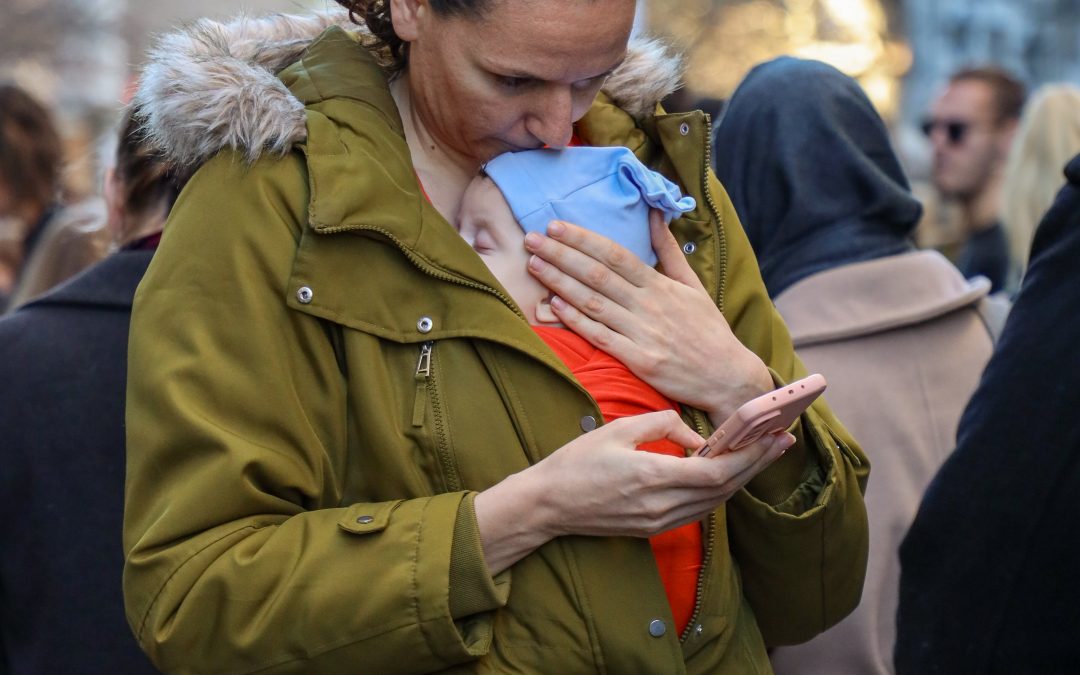Trauma and Childbirth – How does It Affect Your Nervous system?
As a Polyvagal Psychotherapist, I have supported a lot of women with trauma relating to childbirth. It can go unrecognised because there is the societal belief that giving birth is “natural” and that “women are designed to have babies”, etc.
Often this is not the case and women suffer extreme physical pain, feel afraid, helpless and unsupported by medical staff, say that they are treated “like a piece of meat” and were terrified of dying or of their baby dying from prolonged labour or an emergency caesarean surgery.
During childbirth, your spouse or partner may feel helpless or scared and not know what to do or say to soothe, comfort and reassure you, or give you the support that you need at that time. This can leave you feeling very alone, scared and out of control.
Women often say “I thought I was going to die.” What a horrifically traumatic experience to have! During a distressing childbirth experience you go into an instinctive survival response, but often have to override it and just push through. It is at times like this, when your instinctive survival states have not been fully discharged or reset, that your nervous system can stay stuck in a fight, flight, freeze or fawn survival response.
This can leave you feeling unsafe long after the traumatic event has passed. Typically Mums have to take care of their baby so they just soldier on through physical, emotional and psychological trauma and tend to survive rather than thrive. You may not feel safe in your body, lack trust and generally feel unsettled.
You may have noticed that it is difficult to bond with your baby, your relationship with your spouse or partner is negatively affected, it may feel more challenging to connect with people in your life and to interact generally.

How might this show up?
Everyone’s trauma is unique and it will vary on an individual basis, but here are some of the potential challenges you may face while you recover from childbirth trauma.
· Hypervigilance – Feeling anxious and on edge constantly. Experiencing a heightened awareness of potential threats and dangers in all areas of your life, including difficulty trusting others because of a fear of being hurt.
· Anger – You may feel angry with the medical providers involved in your experience or follow-up care. Undischarged fight or flight adrenaline responses will cause you to feel reactive. A lack of control, frustration about your circumstances, and all the changes it causes can lead to anger outbursts that get directed unintentionally towards loved ones and others.
· Feeling misunderstood – When other people do not understand your unique experience, this can feel isolating and lonely. Their responses to your experience may lack understanding, feel insensitive and dismissive. Because of the social perception that childbirth is a part of life, some people do not understand that a particular experience or outcome could be traumatising. Just because something is considered to be typical or common place, does not mean that it is not traumatic.
· Guilt and shame – You may feel guilty for not connecting with your baby, like a burden to those around you and you may withdraw, or detach from loved ones because of internalised shame. You may think that you are bad, or unworthy, or that you should have done something differently. Guilt and shame after a trauma can be very intense and this can feel isolating, resulting in extreme difficulty in giving and receiving love in relationships.
· A need to control – As a result of an inability to change or control the circumstances surrounding the birth, you may try to control everyone and everything around you. This type of control is high anxiety and an attempt to stay safe and not be caught off guard, but it’s also exhausting.
· Health anxiety – You may constantly worry about your health, frequently check your body for symptoms, obsessively look at health information on-line, fret that a doctor or medical tests may have missed something, and avoid anything to do with illness including watching TV programmes, etc.
· Loss of confidence – You may lose confidence in your ability to cope and handle the responsibilities and challenges of daily life. You may feel afraid of spending time alone and decision-making may be more difficult. You may feel needy, embarrassed or a failure because you require help or support.
· Avoidance – Certain sights, sounds, smells and sensations may trigger you causing flashbacks or panic attacks. You try to block it all out, so you avoid people, places, thoughts, feelings and details associated with the birth. You may avoid hospital appointments or going into hospital settings.
· Defensiveness – An increased feeling of vulnerability can alter your perceptions and make interactions with others feel more threatening. The fight response may cause aggressive or defensive responses to become more automatic as a way of trying to protect yourself.
· Emotional numbness – The freeze response may cause you to feel nothing, or lack the ability to express emotions. Your partner or spouse may also have their own trauma surrounding the event, or they may have inherited beliefs about what is considered appropriate. There may be a belief that your recovery should be a certain way and within a certain timeframe. The pressure to “get over it” can cause tension in the relationship and feelings of failure when those expectations are not met, so you may shut down completely.
· Difficulty with intimacy – To be able to enjoy closeness with others requires feeling safe in your own body, but often the body is where the trauma took place. Unsurprisingly, you can experience discomfort with emotional, physical, or sexual intimacy. When you have an imbalanced nervous system that is stuck in an instinctive survival response, it’s impossible to relax and physical and emotional closeness feels too threatening.
· Your future plans change – Birth trauma may result in major and unexpected changes to your physical health, ability, sexual function, mobility, financial situation, fertility, or mental wellbeing. These significant changes can be very difficult to navigate because of what it means for the future of a couple, family, or community.
How are you feeling after reading this? Does this resonate with you? I can help to guide you through the complicated emotions and feelings from childbirth trauma and teach you how to effectively reset your nervous system so that you can feel safe, calm and in control again.

